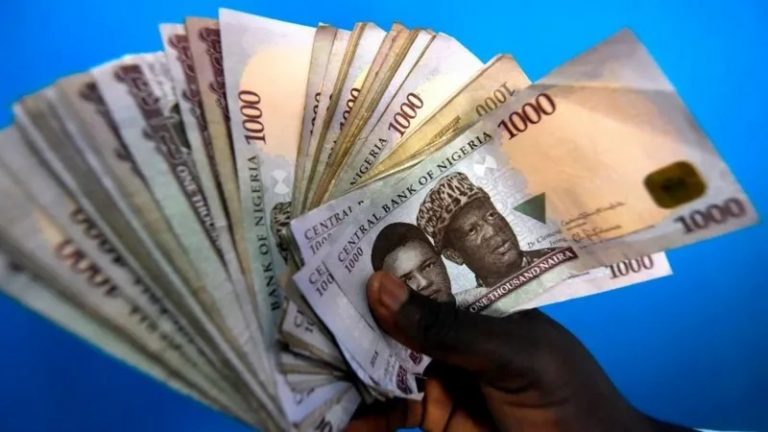
Nigeria’s fuel subsidy program has been a topic of heated debate for years, seen by some as essential for supporting the populace, while others argue it places a heavy burden on the economy. Recently, Aliko Dangote, Africa’s richest man and head of the Dangote Group, called for the end of Nigeria’s fuel subsidies, emphasizing that doing so could stabilize the Naira and improve the country’s forex reserves. This article explores the implications of ending fuel subsidies on the Naira, inflation, and Nigeria’s economic landscape.
Understanding the Fuel Subsidy and Its Economic Impact
Fuel subsidies were introduced to make petroleum products more affordable, especially as Nigeria remains heavily reliant on petrol for transportation and daily activities. The government has historically shouldered the cost difference between international oil prices and local retail prices, keeping fuel prices low. However, these subsidies have come at a significant financial cost. In 2022, the Nigerian government spent over ?4 trillion on fuel subsidies, draining resources that could be allocated to critical infrastructure and social programs. Critics argue that the subsidy disproportionately benefits wealthier individuals, while many Nigerians struggle to meet basic needs. As global oil prices continue to rise, the sustainability of these subsidies is increasingly questioned. Dangote’s call to remove them highlights the need for reform and the potential benefits for the Naira and the economy.
The Argument for Ending Fuel Subsidies
Aliko Dangote argues that removing fuel subsidies would free up resources for more productive investments, which could help stabilize the Naira and reduce pressure on Nigeria’s forex reserves. When the Naira depreciates, it leads to a higher cost of imports, including fuel. With Nigeria importing refined petroleum despite being a major oil exporter, the government spends billions from its forex reserves to maintain this subsidy. This depletion of reserves puts additional strain on the Naira. Ending the fuel subsidy would lessen the government’s reliance on forex reserves to stabilize fuel prices, allowing these reserves to be used for essential economic activities. A stronger Naira would ultimately benefit both consumers and businesses, as it would lead to lower import costs and reduced inflation.
Reducing the Fiscal Deficit
The fuel subsidy contributes significantly to Nigeria’s fiscal deficit, which reached ?10.8 trillion in 2022. By eliminating this subsidy, the government could redirect funds toward critical areas such as infrastructure, healthcare, and education, fostering economic growth. A healthier fiscal position would reduce borrowing needs, lower debt servicing costs, and make Nigeria more attractive to foreign investors. This could lead to greater capital inflows and further strengthen the Naira.
Short-term Challenges: Inflation and Public Discontent
While the long-term benefits of removing fuel subsidies could be substantial, the immediate consequences are likely to be painful, especially for Nigerian citizens. The removal of fuel subsidies will likely result in a sharp increase in fuel prices, leading to higher transportation costs. This increase will ripple through the economy, driving up prices for goods and services and exacerbating inflation, which is already over 22%. The immediate effect on consumer purchasing power could lead to public unrest, as many Nigerians may find it challenging to cope with rising living costs. The fuel subsidy has long been viewed as a form of social support. Ending it could lead to widespread protests and discontent, as seen in 2012 when similar measures were attempted. However, proponents argue that the short-term pain will ultimately be outweighed by the long-term economic benefits.
Boosting Local Refining Capacity: A Crucial Next Step
For the removal of fuel subsidies to truly benefit the Nigerian economy and the Naira, it is essential to improve local refining capacity. Dangote’s own refinery, set to become the largest single-train refinery in the world, could transform Nigeria’s petroleum landscape. Once operational, it could reduce the country’s reliance on imported fuel and lessen the strain on forex reserves. By refining its crude oil locally, Nigeria could save billions and create thousands of jobs, boosting GDP and providing a buffer against price fluctuations. This local capacity would help ensure that the end of fuel subsidies does not lead to excessively high fuel prices, easing the transition for consumers.
Long-term Gains for the Naira and Nigeria’s Economy
In the long run, removing the fuel subsidy could have several positive effects on the Naira and Nigeria’s economy: reduced reliance on imports would help preserve forex reserves, supporting a stronger Naira and decreasing the need for interventions by the Central Bank of Nigeria (CBN). The government would have more resources for investment in critical infrastructure and social services, boosting economic growth. A stronger Naira, combined with a healthier fiscal position, would attract more foreign direct investment (FDI), further bolstering the economy.
Additionally, for Nigerian traders and investors, the ongoing depreciation of the Naira poses challenges in managing forex trades. Using forex brokers with Naira as an account base currency allows traders to deposit, trade, and withdraw in Naira, reducing the risk of currency conversion costs that can erode profits. These brokers also enable traders to hedge against fluctuations in the exchange rate more effectively. With the potential for a stronger Naira following the end of fuel subsidies, engaging with such brokers could help Nigerian traders capitalize on market opportunities while mitigating risks.
Conclusion
The debate over Nigeria’s fuel subsidy extends beyond mere fuel prices; it is about the country’s economic future. Ending the subsidy, as suggested by Aliko Dangote, could stabilize the Naira and strengthen the economy in the long term. While the immediate effects may be painful, especially in terms of inflation and public backlash, the potential benefits are significant. For the Nigerian economy to thrive, the government must also focus on enhancing local refining capacity and ensuring that resources are redirected to productive investments. If managed wisely, the removal of fuel subsidies could play a crucial role in fortifying the Naira and setting Nigeria on a path toward sustainable economic growth.
For more insights, resources like NNPC and BusinessDay offer updated economic data and analyses on the impact of fuel subsidies and their implications for Nigeria’s economy.

